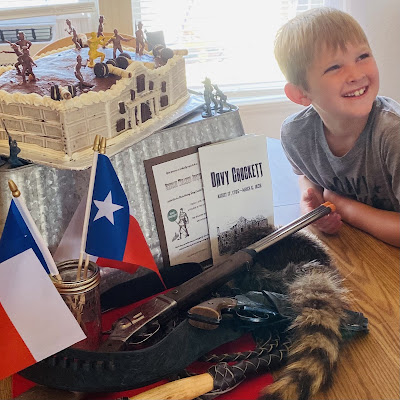10 Tips for Diving into Homeschooling!
Hi friends!
So, you've decided to homeschool! You're looking at the school year stretching out ahead of you and then you look over at your busy, active, energetic kids and you think, now what?
You are not alone--we have ALL been there!
I was homeschooled from 5th grade on and now homeschool my own kids, but it definitely took me a while to find my footing! Deciding on curriculum, exploring teaching methods, and being realistic about what our schedule and life as a homeschool family was going to look like is always a challenge! Much like all of Christian life, I don't think you can ever "arrive" as a homeschooler. Each year brings new opportunities, challenges, and adjustments--because you're developing little people!
So, I have ten tips to help you evaluate and get started with setting up your homeschool!
1. Look at God's priorities for your kids.
Surprisingly (or maybe not...) God has LOTS to say about educating children!
A couple passages I've seen God use in reference to our family's homeschool are:
Deuteronomy 6:7, "You shall teach them [God's Words] to your children, and shall talk of them when you sit in your house and when you walk by the way, and when you lie down, and when you rise." Phew, if that doesn't describe homeschooling, I don't know what does!
II Timothy 2 Paul tells Timothy to not be entangled by worthless things, but rather to learn how to rightly handle truth so that he can be "a worker who has no need to be ashamed" and is ready to be presented to God. Isn't that just what we want for our kids?! So before you dive into the nitty gritty of homeschooling, take the time to study what God says about teaching your children! If you need a little guidance in where to look in Scripture, I highly recommend Israel Wayne's book, Education: Does God Have an Opinion?
2. Pray, pray, pray!
Psalm 127:1-2 says, "Unless the Lord builds the house, those who build it labor in vain; unless the Lord watches the city, the watchmen stays awake in vain." Proverbs 16:3 urges us to commit our plans to the Lord, that they may be established. Time after time through Scripture we see the folly of striking out in a direction that makes sense to us from our earthly perspective. All the while, God keeps admonishing His people to follow HIS ways, to seek HIS counsel-- because He has a better plan! This is true for all of life, but I think especially important when we consider training our kids.
What about when it's not crystal clear from Scripture? I mean, it's easy enough to say, "Thou shall not steal;" but nowhere in the Bible does it tell me what math curriculum to use. This is when we need to hit our knees! I firmly believe that if you're obeying the clear commands of Scripture, God will be faithful to guide you in the specifics of areas that are less clear!
3. Give yourself a full two years to find your rhythm
Seriously. I genuinely believe that it takes two years minimum to find your rhythm as homeschool family and adjust to the new dynamic of homeschooling; this is both if you start from the very beginning and if you change partway from a public or private school (I've experienced both!) Since you're both parent and teacher now, it takes a while to figure out how to balance all the things. Have grace for yourself and have a serious discussion with your spouse about expectations and workload as you make the switch--and keep the lines of communication open! Which brings me to my second point...
4. Go annually IN PERSON to a homeschool convention or conference.
I consider the homeschool convention in our state to be my "professional" annual training--and I also take advantage of various online summits and expos during the year! See here or here for two organizations I recommend.) Maybe others don't feel this way, but I sometimes find myself believing the world's dismissive attitude toward homeschool moms and--really--any stay-at-home mom. I believe that I'm "just" a mom, as if what I do is not difficult, important, nuanced, or a valid vocation or calling. But that is a lie--motherhood alone is an extraordinarily high and difficult calling; add to that the education element and then the most discipleship of your kids...yes. If we think professional teachers, counselors, ministry workers, and managers ought to have ongoing trainings, then I think (considering the many hats a homeschool mom wears!) we ought to also make training and going to a conference a priority if possible. My annual conference reminds me of the reasons we started this whole thing in the first place, while simultaneously providing training and resources so that I can come back refreshed and equipped for the next challenge.5. Go annually to a homeschool convention or conference WITH YOUR HUSBAND.
This is a game-changer, guys. I remember my whole family going and making it a big annual event and we all loved it; but if your kids are little (and depending on the childcare arrangements of your convention) I highly recommend figuring out a way that you and your husband can get away together so that you can not only get the benefits of the convention yourself, but so that he can also be encouraged and get a better understanding of what you do with your time, and how he, as the father and head of the household, can get involved!
6. Find a few established homeschoolers and ask if you can watch their normal day.
This may sound weird and intrusive (and I bet you know which of your friends will be ok with this and which will be stressed out by it!) but I have found this to be helpful both for the person watching--you get to see the ways different families fit in daily life with education and multiple ages and different developmental stages etc.--and the person showing remembers that there really is a method to the madness! (Unless, of course, there isn't, in which case, you can see how that works, too!) I do suggest watching more than one person, because we all have our imbalances and obsessiosn and blind spots, and seeing more than one option SHOULD help you see this critical homeschooling tip:
7. Expect your homeschool to be as unique as your family.
This is one of the most exciting parts of a Homeschool--it is completely, 100%, top-to-bottom customizable! There are SO many excellent options out there now--there used to be only a very few curriculums available to Homeschoolers, but that is certainly not the case anymore! Various curriculums follow various methods--Waldorf, Charlotte Mason, Classical Education, Montessori, unschooling, and much, much more! Personally, I'm a very eclectic homeschooler (I take my favorite bits out of each type!) So, how do you choose what to do? Honestly...I wouldn't. I would look at the requirements of your state (see each state's requirements here) and then look for ways to meet those while you have time to figure out how you teach best and how your kids learn best. If your child is already in High School and you are working towards a college entrance, I'd look at a few college entrance requirements and plan accordingly. Again, this is where homeschooling families near you or a Homeschool Convention are indispensable to help you sift through all the options.
8. Start keeping records.
Every state requirements are different for the records you need to keep. My state is funky in that there are technically no records required, however, you have to be prepared to show records if a social worker asks for them(?!). We are required to do a certain number of school days and to cover Math, Science, English, and Social Studies, so there is a ton of flexibility, for which I am grateful!
Since I'm in love with planners, checklists, bullet journals, and daytimers, I have tried pretty much everything out there. I love most of them for various reasons, but my fall back is consistently a document that can help double as my checklist for the week and then it goes in the binder as a record of what we accomplished. I often build it on my computer and then at the beginning of the month create a new one and print out the old one to go into my school binder. This is useful as the kids get older, because I can print a copy for my kids, too, and they can use it as their daily checklist of things to do.
Records you can keep even before you have any formal curriculum plan includes:
- A running list of books the child has read, both aloud and independently
- A list of games, interests, and shows that develop skills (for example, my kids like playing Scrabble and Pass the Pigs, which is essentially spelling and adding. They also enjoy Nature shows--Wild Kratts! Octonauts!--which are a great introduction to natural science. They spend tons of time building with Legos, which is spatial recognition. They love dressing up and adventuring based on shows or reading we've done from different eras--from knights and vikings to Davy Crockett and Laura Ingalls Wilder. I do not consider any of these to be enough (some people do--it's called "unschooling") but I certainly think it counts as a supplement!
- Immunization or Waiver Forms (This isn't strictly related to your educational records, but it is a part of the state requirements, so I include it here so you won't overlook it!)
9. Set your vision, and narrow it down from there.
You all know the saying--if you aim at nothing, you'll hit it every time! Take the time to sit down and figure out what you want out of your homeschool! I highly recommend getting your husband to join you in a pow-wow to discuss this. It can be a tough conversation, but it really is worthy it! I start big picture: what is the overall goal of our homeschool? Or to put it another way, what do I want my kids to look like when they graduate?
Now, once you know what your overall goal is, here's the trick.
DON'T LET YOURSELF GET CONSUMED BY ANYTHING THAT DOES NOT MOVE YOU TOWARDS YOUR GOAL.
This is not to say that you can't have fun, do side things, and follow bunny trails--all that is great (and may even help you more clearly define and understand your goals!). But I think you know what I mean if I say, don't be consumed by something. If you realize all your time is being spent on, say, a sporting activity and your child is not able to focus on the character issues he needs to develop or the foundational reading skills that she needs...maybe it's time to re-evaluate the extracurricular activities and recenter on your goals.
10. Use your big-picture goals to narrow it down until you know what you need to do NOW.
Once you know your overall goal, it's much easier to move from there to a more immediate vision: What do I want them to be learning in this season?
Once I have a greater "seasonal" goal (e.g., what do I want them to be able to do by the time their out of the elementary years?) Then I narrow it down to, what are my goals for this year?
After that, it's really simple to break it down into what needs to be done in months (or weeks, or days) to get there. I found this helpful in deciding on curriculum, too--if it didn't meet one of my overall goals (such as, teach a solid biblical worldview) I was able to quickly disregard it.
I hope these thoughts are helpful for you! As always, please find a local homeschooler near you or reach out if there's any way I can help!
Blessings!
To hear some of my getting started stories, check out this post where I talk about God's faitfulness!




.jpg)







Comments
Post a Comment